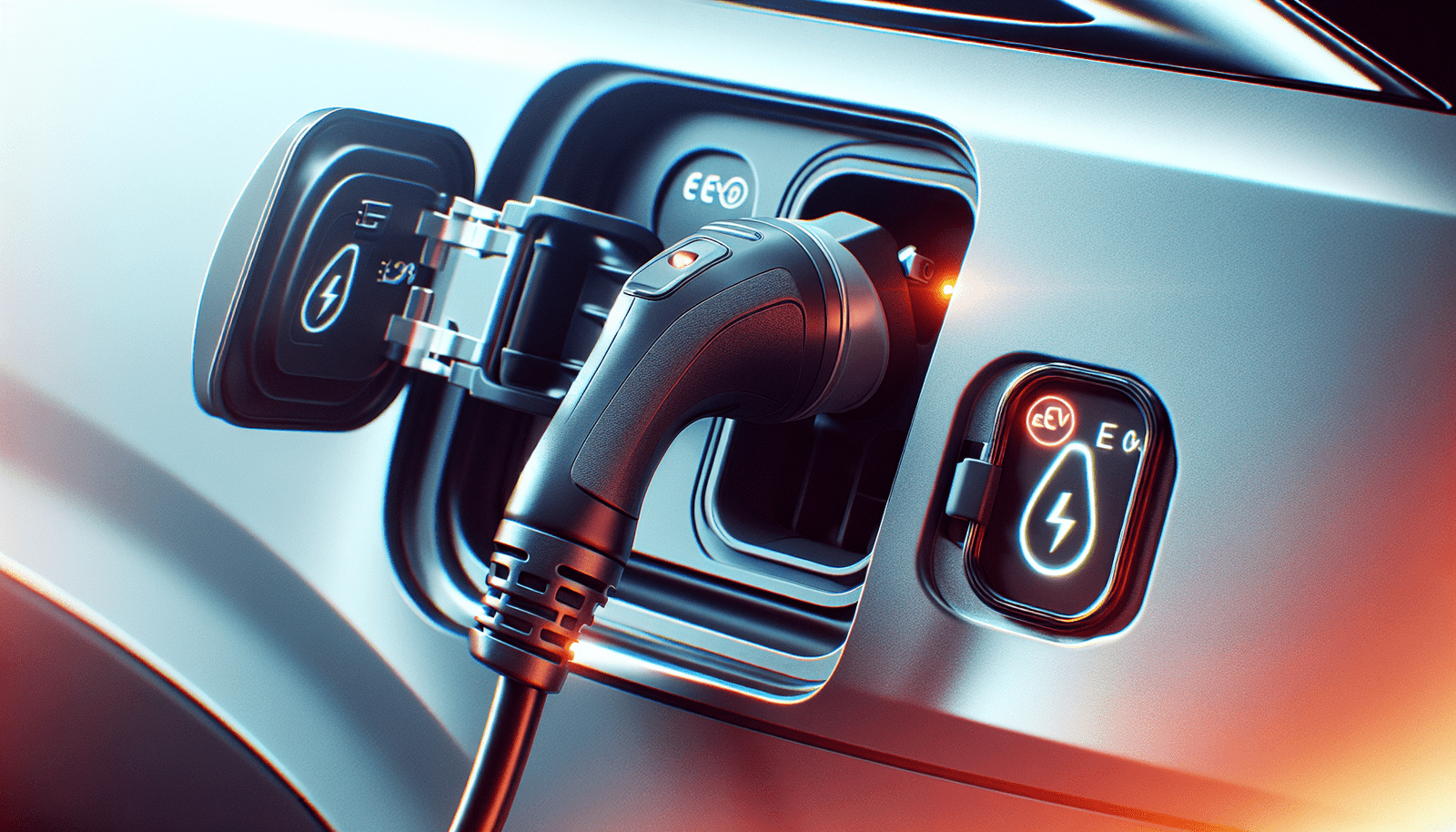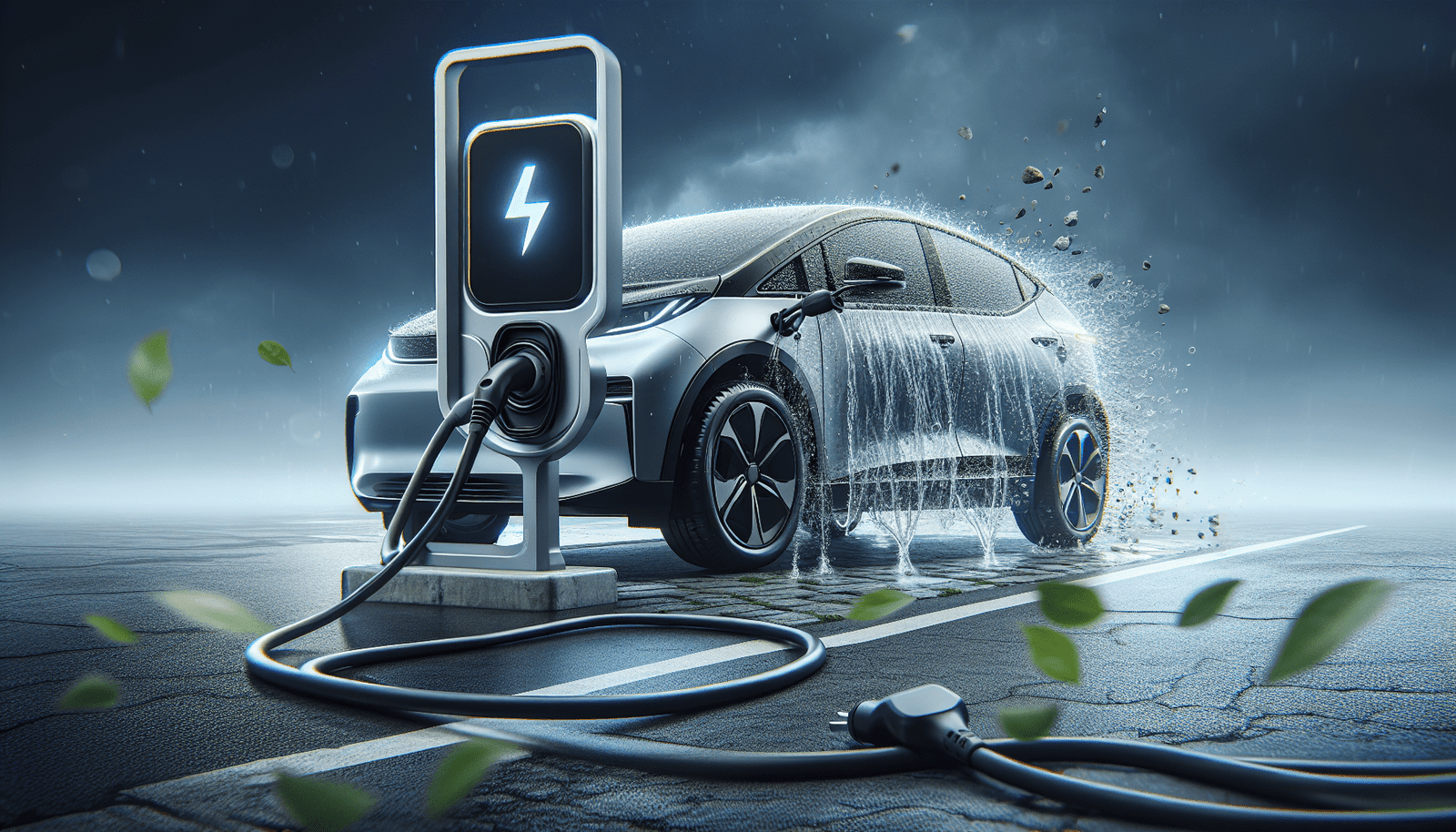Are you an avid electric vehicle user or someone searching for EV charger product reviews? If so, we’ve got you covered! In this article, we will provide you with all the information you need about setting up public EV charging stations. Whether you’re curious about the installation process, the benefits of having these stations in your community, or the best EV charger products on the market, we have it all. Our friendly and approachable tone will make it easy for you to understand, and we’ll even throw in some SEO insights to ensure you have the most up-to-date information. So sit back, relax, and get ready to learn everything you need to know about public EV charging station setup! And don’t forget, at the end of the article, we’ll have a special call to action for you to start shopping online.
Why set up a public EV charging station
Setting up a public Electric Vehicle (EV) charging station comes with numerous benefits for businesses and communities alike. By offering EV charging services, businesses can attract a growing customer segment and enhance their reputation as eco-friendly establishments. It also presents an opportunity for communities to support sustainable transportation options and encourage more people to adopt EVs, thereby reducing carbon emissions and improving air quality.
Benefits for businesses and communities
For businesses, a public EV charging station can attract and retain customers who drive electric vehicles. This growing demographic seeks out locations where they can conveniently charge their vehicles while conducting business or shopping. By catering to their needs, businesses can increase foot traffic and customer loyalty.
Communities also benefit from public EV charging stations. They provide a solution to the lack of charging infrastructure and encourage the adoption of EVs, which helps reduce carbon emissions and dependence on fossil fuels. Moreover, having charging stations readily available boosts the local economy by attracting EV drivers who spend time and money in the area.
Rising demand for EV charging stations
The demand for EV charging stations is on the rise as the popularity of electric vehicles continues to grow. With more people switching to EVs, the need for convenient and accessible charging infrastructure increases. By setting up a public EV charging station, you can tap into this growing market and meet the needs of EV owners who are seeking reliable charging options.
Environmental benefits
Promoting sustainable transportation through the setup of EV charging stations has significant environmental benefits. Electric vehicles produce zero tailpipe emissions, reducing air pollution and contributing to cleaner air quality in both urban and suburban areas. By supporting the growth of EVs through charging station infrastructure, you are actively participating in the reduction of greenhouse gas emissions and mitigating the effects of climate change.
Government incentives for EV charging stations
Governments at various levels often provide incentives to encourage the installation of public EV charging stations. These incentives can include grants, tax credits, or funding assistance. By taking advantage of these programs, you can offset some of the initial costs associated with setting up a charging station and make it more financially feasible for your business.
Choosing a location for your EV charging station
Selecting the right location for your EV charging station is crucial to ensure its visibility, accessibility, and convenience for EV owners. Consider the following factors when choosing a location:
Visibility and accessibility
Choose a location that is easily visible and accessible to EV owners. It should be located in a high-traffic area, such as shopping centers, business districts, or parking lots. Visibility plays a key role in attracting EV drivers and increasing usage of your charging station.
Availability of grid connection
Ensure that the chosen location has a reliable and adequate grid connection. EV charging stations require a stable power supply, and proximity to power infrastructure will help minimize installation and operational costs.
Adequate parking space
Ensure that the location has sufficient parking space for EV drivers to park and charge their vehicles. This will help avoid congestion and inconvenience for both EV owners and other customers.
Local EV ownership statistics
Research the local EV ownership statistics in your area to determine the demand for charging stations. Areas with a higher concentration of EV owners will provide more potential customers for your charging station.
Types of EV charging stations
There are three main types of EV charging stations, each with varying charging speeds and compatibility:
Level 1 charging stations
Level 1 charging stations utilize a standard household outlet and provide the slowest charging speed. This option is best suited for overnight charging at home or in situations where extended charging durations are acceptable.
Level 2 charging stations
Level 2 charging stations provide faster charging speeds compared to Level 1. They require a dedicated 240-volt circuit and are commonly used in public and home charging setups. Level 2 charging stations are suitable for shorter charging durations.
DC Fast charging stations
DC Fast charging stations, also known as Level 3 charging stations, offer the highest charging speeds and are primarily found along major highways and busy commercial areas. These stations utilize high-power DC charging and can charge an EV significantly faster than Level 1 and Level 2 stations. However, DC Fast charging stations are more expensive to install and are typically used for quick charging during long-distance travel.
Equipment and installation
Choosing the right Electric Vehicle Supply Equipment (EVSE) is essential for ensuring efficient and reliable charging at your station. Consider the following when selecting an EVSE:
Choosing an EVSE (Electric Vehicle Supply Equipment)
Consider the charging speed, compatibility with different EV models, and reliability of the EVSE when making your selection. Look for EVSEs that offer advanced features such as smart charging capabilities, overcurrent protection, and user-friendly interfaces.
Professional installation
It is crucial to hire a professional electrician or an experienced EV charging station installer for the installation process. This ensures that the charging station is correctly integrated with the electrical system, minimizing the risk of electrical issues and maximizing safety.
Setting up payment and monitoring systems
Consider implementing a payment system for your EV charging station to cover maintenance and operational costs. Additionally, installing a remote monitoring system allows you to track usage, detect any issues, and provide a seamless charging experience for your customers.
Costs and funding
Setting up a public EV charging station involves various costs. Understanding the breakdown of these costs and exploring funding options is important. Consider the following:
Costs breakdown – equipment, installation, maintenance
The costs can include purchasing the charging equipment, installation fees, ongoing maintenance and repairs, permits, and utility fees. It is essential to factor in all these costs when planning your budget.
Recovering costs through charging fees
Charging fees can help offset the costs associated with running and maintaining the charging station. Determine the appropriate pricing structure and consider the market rates, operating costs, and local competition when setting the fees.
Government and corporate grants for EV charging stations
Many government agencies and corporations offer grants and incentives to help offset the initial costs of setting up EV charging stations. Research and apply for these funding opportunities to reduce your financial burden.
Availability of loans for setting up EV charging stations
Financial institutions may offer loans specifically designed for setting up EV charging stations. These loans can provide a flexible way to fund your project while spreading the initial investment over time.
Rules, regulations, and permits
Before setting up a public EV charging station, it is crucial to understand and comply with the rules, regulations, and permits required in your jurisdiction. Consider the following:
Obtaining necessary permits
Contact local authorities to determine the permits required for installing and operating a public EV charging station. Ensure compliance with zoning regulations, electrical codes, and any other relevant requirements.
Compliance with local/state/federal regulations
Familiarize yourself with the local, state, and federal regulations that govern public EV charging stations. These regulations may include safety standards, accessibility requirements, and specific operational guidelines.
Accessibility requirements
Ensure that your charging station meets accessibility standards, allowing individuals with disabilities to use the facility comfortably. Consider factors such as parking space dimensions, charging cable reach, and signage for accessibility compliance.
Safety considerations
Safety is of utmost importance when setting up an EV charging station. Consider the following safety considerations:
Inbuilt safety features in EV charging stations
Choose EV charging stations that have built-in safety features, such as overcurrent protection, ground fault detection, and temperature monitoring. These features help prevent electrical hazards and ensure safe charging.
Safe installation procedures
Follow proper installation procedures and consult with professionals to ensure compliance with electrical safety standards. This includes correctly grounding the charging station, using appropriate wiring, and adhering to manufacturer instructions.
Training and signage for safe usage
Provide clear instructions and informational signage to guide EV owners in using the charging station safely. Additionally, conduct training or informational sessions to educate staff and customers on safe charging practices.
Maintenance and troubleshooting
Regular maintenance and prompt troubleshooting are essential to ensure the smooth operation of your EV charging station. Consider the following:
Routine maintenance checks
Schedule routine maintenance checks to inspect the condition of your charging station, including the EVSE, cables, and connectors. This helps identify any potential issues before they escalate, ensuring consistent charging performance.
Addressing common issues – slow charging, station not working
Be prepared to address common issues that EV owners may face, such as slow charging speed or a charging station not functioning. Establish troubleshooting procedures and have a system in place to handle maintenance requests.
Engaging professional services for repairs
In case of significant repairs or technical issues, it is advisable to engage professional services to ensure the safety and efficiency of your charging station. Repair and maintenance technicians with expertise in EV charging stations can provide prompt and effective solutions.
Increasing the usage of your EV charging station
To maximize the usage of your EV charging station, consider the following strategies:
Promoting your EV charging station
Create awareness about your charging station through local marketing initiatives, social media campaigns, and partnerships with local EV associations or environmental organizations. Highlight the benefits of charging at your location and the convenience it offers to EV drivers.
Partnerships with EV manufacturers or supply companies
Establish partnerships with EV manufacturers or supply companies to promote your charging station. Collaborate on promotional activities, incentivize EV owners to charge at your location, or offer exclusive benefits to customers of specific EV brands.
Bundling charging costs with other services (e.g., parking, shopping)
Explore the option of bundling the cost of EV charging with other services, such as parking or shopping. This can incentivize customers to utilize your charging station while availing themselves of other convenient services you offer.
Future-proofing your EV charging station
To ensure the longevity and relevance of your EV charging station, consider the following measures:
Upgrading capabilities for newer EV models
As EV technology evolves, newer models may have different charging requirements. Plan for potential upgrades to your charging equipment to accommodate future EV models and charging standards. This will ensure your charging station remains compatible and attracts a wider range of customers.
Expanding capacity with increasing EV ownership
Monitor the local EV ownership trends and assess the demand for charging services. If EV ownership increases significantly, consider expanding the capacity of your charging station to meet the growing demand. This enhances customer satisfaction and avoids congestion at peak times.
Adopting renewable energy sources for powering the charging station
Consider utilizing renewable energy sources, such as solar or wind power, to supply electricity to your charging station. This aligns with the eco-friendly ethos of EVs and further reduces the environmental impact of charging operations. It also offers the potential for cost savings in the long run.
In conclusion, setting up a public EV charging station presents numerous benefits for businesses and communities. By considering factors such as location, equipment, costs, safety, and future-proofing, you can create a valuable charging infrastructure that supports the growth of electric vehicles, contributes to environmental sustainability, and meets the needs of EV owners in your area.




